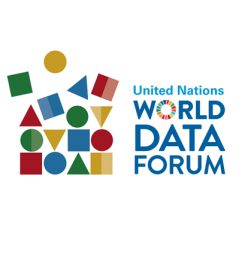Bringing statistics where opinions and decisions are made
22 Oct 2018 02:00h
Event report
Moderated by Mr Ernest Chi Cho (United Nations Economic Commission for Africa), the panel addressed a host of questions related to National Statistical Offices (NSOs), the statistical data ecosystem they operate in, and the interactions and processes they find themselves in. The panel then widened its focus to consider the role of non-state actors, in particular academia, journalists, and civil society.
Speaking first, Ms Josie Perez (Philippine Statistics Authority) emphasised that NSOs are not just data collectors and data processors. A key task of NSOs is also the promotion of the use of statistics. This means that data users need to be informed adequately and NSOs need to promote the information they have available. For this, broad participation in dialogue between policy makers and NSOs is key.
Ms Irena Krizman (former Director-General of the Statistical Office of the Republic Slovenia) focused on the interaction between policy makers and NSOs. She emphasised that interaction should take place at three levels: (a) heads of NSOs need to have or develop a direct line of communication and relationship with the government and ministries, (b) at the expert level, key staff in NSOs should advise on the measurability of policies and relevant indicators, and (c) adjustments at the organisational level of NSOs should support dialogue and cooperation between NSOs and the government. Krizman also highlighted the advantages of this cooperation: improved regulation with measurable outcomes, meeting data needs for timely planning; accountability for the use of finances and resources by NSOs, and better policies.
Mr Yusuf Murangwa (Director General of the National Institute of Statistics of Rwanda) emphasised that good practice starts with asking policy makers about their (data) needs. This is a first step for bringing policy makers and statisticians into dialogue. On the side of statisticians, Murangwa identified a need to build negotiation and communication skills. He argued that statistics are a good product, but better communication is needed to promote statistics and emphasise their power and relevance. He also cautioned that NSOs need to preserve their independence while increasing their dialogue with policy makers.
Mr Pali Lehohla (former Statistician-General of South Africa, former head of Statistics South Africa) described statistics as the most public of information systems and that, therefore, the priority should be on accountability to the people. In particular, the (added) value of the information needs to be made visible. All in all, Lehohla stressed that we need to make sure that statistics can play a transformative role in the lives of citizens.
Mr Ben Kiregyera (Director of the African Center for Statistics at the United Nations Commission for Africa) described NSOs as having a dual mandate: they provide statistics and they coordinate the national statistics system. However, he also identified a lack of resources and coordination, especially for newer NSOs and those in developing countries. Looking at the broader picture, he argued that there is a need of modernisation and effective coordination of the national statistical system, which should be led by NSOs.
Mr Philipp Schönrock (Director of Cepei) expressed his concern about leaving non-state actors, in particular academia, journalists, and civil society, out of the conversation. He argued that these non-state actors are part of the value chain of data and statistics. First, academia and similar actors create much needed capacities. Second, non-state actors generate additional evidence through their work, which can supplement the work of NSOs. Third, non-state actors are important users of the statistics provided by NSOs. Without also keeping non-state actors in mind, he argued, it would be hard to understand and improve the statistical data ecosystem.
Mr Misha Belkindas (Managing-Director of ODW Consulting) stressed the role of academia and journalists in delivering the message about the importance of data and statistics to policy makers. These non-state actors play an important role in communicating to a wider audience. Blekindas also argued that in order to be effective, NSOs need to produce trust. Their outputs need to be trusted by the wider stakeholder community in order to be effective.
Mr Michel Mouyelo-Katoula (Lead Consultant at the African Development Bank) also stressed that a greater focus needs to be placed on non-state actors. They have an important role to play because they have very specific and local knowledge in their area of expertise. Mouyelo-Katoula also called for an increased focus on citizen engagement, data consciousness (based on education and literacy programmes on all levels), and data journalism (including the importance of data story telling).
Further discussion among the panellists and with the audience raised questions of the accountability of NSOs, the broader societal value of statistics, and the need for reshaping statistical ecosystems (including moving from being data users to data producers in the context of African countries).
Related topics
Related event

